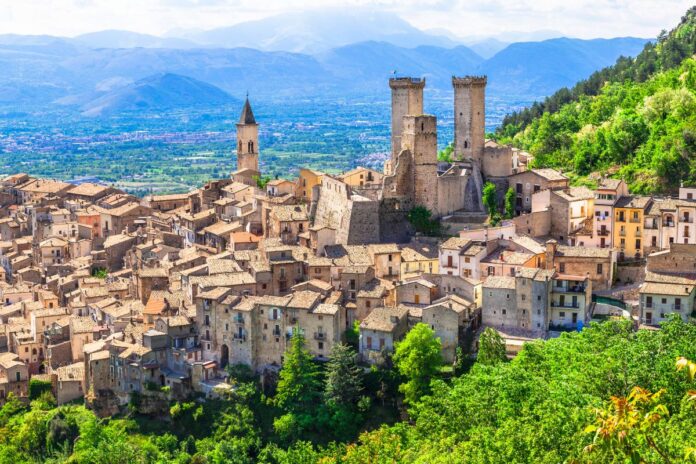Abruzzo, located in central Italy, is a region that offers a captivating mix of rugged mountains, beautiful coastlines, and charming medieval villages. Known for its stunning natural parks and rich cultural heritage, Abruzzo is a destination that promises an authentic and unforgettable Italian experience.
Location and Climate
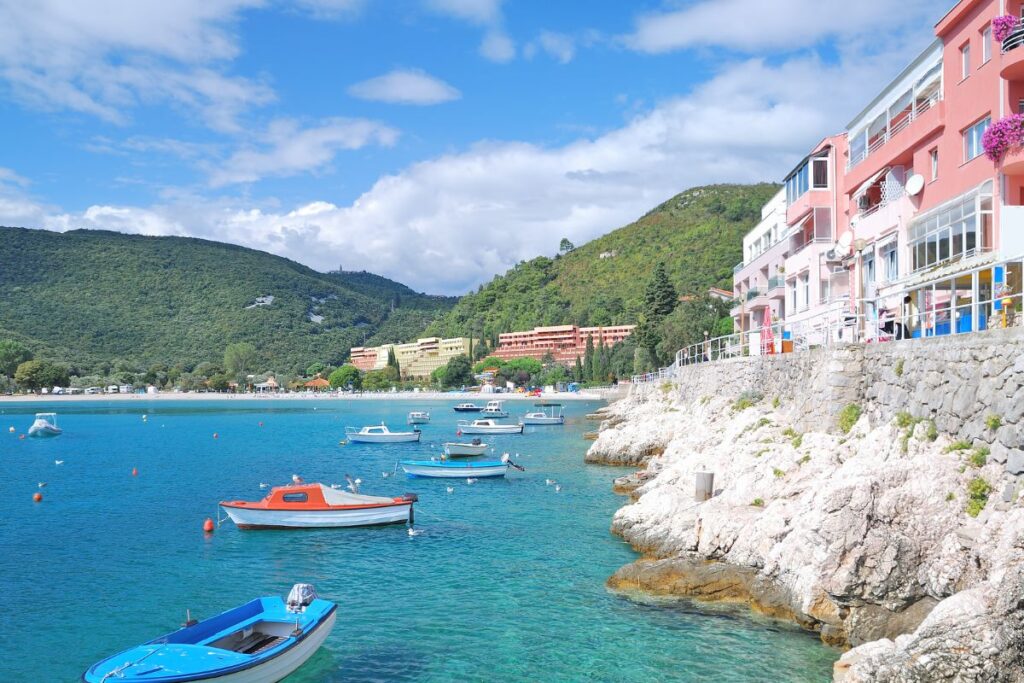
Abruzzo is bordered by the Adriatic Sea to the east, with the regions of Marche to the north, Lazio to the west, and Molise to the south. The region’s landscape is dominated by the Apennine Mountains, which run through its western part, and the coastal plains along the Adriatic.
Abruzzo experiences a varied climate due to its diverse geography. The coastal areas enjoy a Mediterranean climate, with hot summers and mild winters. Inland, especially in the mountainous regions, the climate is more continental, with cold winters and mild summers. This variation in climate makes Abruzzo an attractive destination year-round, offering both beach vacations and winter sports.
Historical Overview
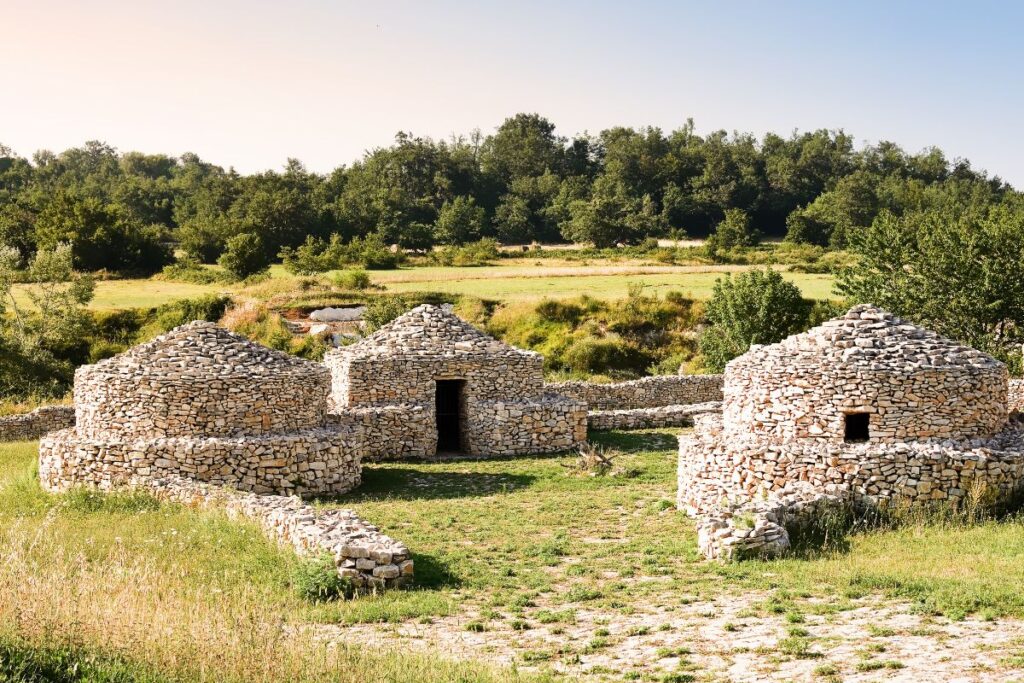
Abruzzo’s history dates back to ancient times, with evidence of human settlement as far back as the Paleolithic era. The region was once inhabited by the Italic tribes, followed by the Romans, who left a significant mark on the area. During the Middle Ages, Abruzzo was part of the Kingdom of Sicily and later the Kingdom of Naples, contributing to its rich architectural and cultural heritage.
The region’s history is reflected in its numerous castles, fortresses, and medieval villages, many of which are well-preserved and open to visitors. These historical sites provide a glimpse into Abruzzo’s past and its strategic importance throughout the centuries.
Major Cities and Towns
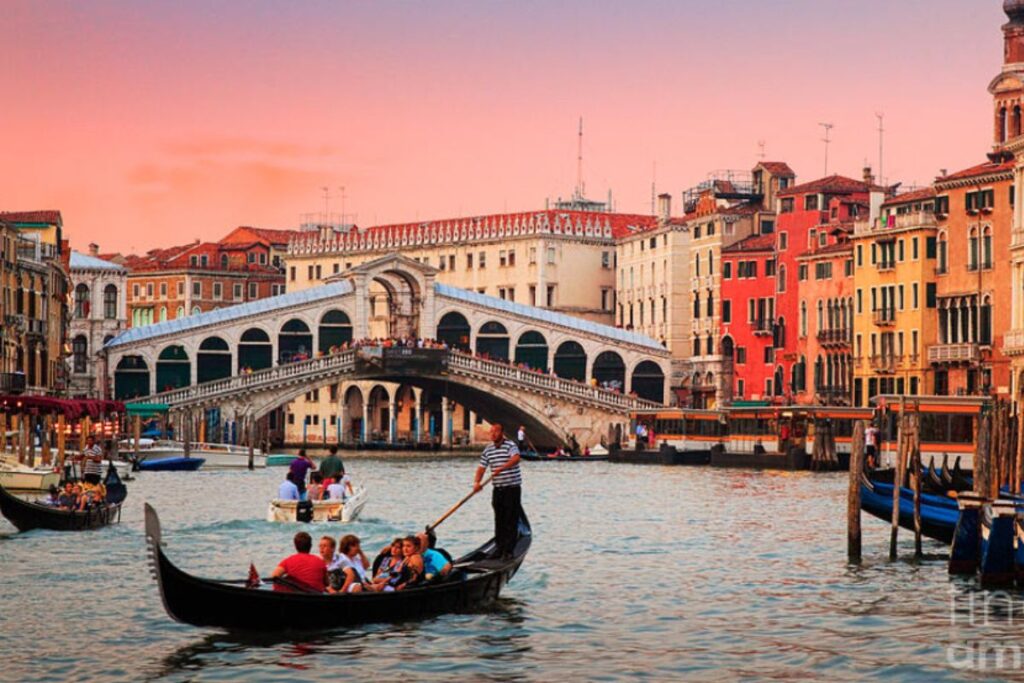
L’Aquila
The capital city of Abruzzo, L’Aquila, is known for its stunning medieval architecture and vibrant cultural scene. Key attractions include the Basilica di Santa Maria di Collemaggio, the Spanish Fortress, and the Fountain of 99 Spouts.
Pescara
Located on the Adriatic coast, Pescara is a bustling city known for its beautiful beaches, lively nightlife, and cultural festivals. The city also boasts several museums and art galleries, including the Birthplace of Gabriele D’Annunzio.
Chieti
One of the oldest cities in Italy, Chieti is rich in history and culture. Visitors can explore the Roman amphitheater, the National Archaeological Museum, and the beautiful Cathedral of San Giustino.
Teramo
Nestled in the foothills of the Gran Sasso, Teramo offers a charming blend of ancient and modern attractions. Highlights include the Roman theater, the Cathedral of Santa Maria Assunta, and the scenic Gran Sasso and Monti della Laga National Park.
Culinary Delights
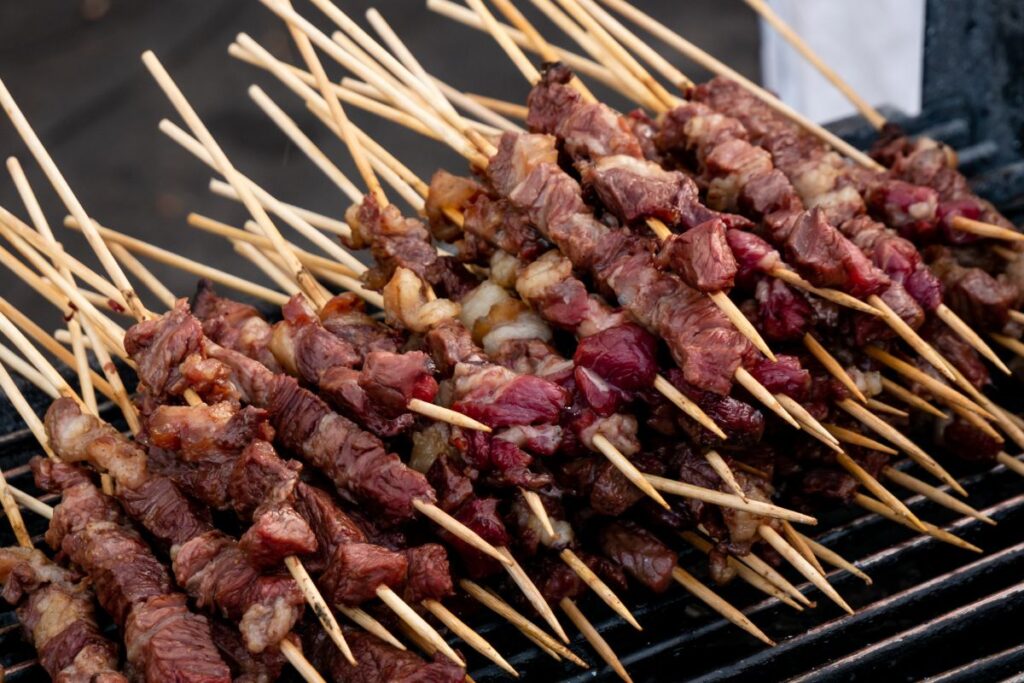
Abruzzo’s cuisine is a reflection of its diverse landscapes and cultural heritage. The region is known for its hearty and flavorful dishes, which often feature locally sourced ingredients.
Arrosticini
These skewers of grilled lamb are a staple of Abruzzese cuisine and are typically seasoned with just salt and olive oil.
Maccheroni alla Chitarra
A traditional pasta made using a special wooden frame called a chitarra, served with a rich meat or tomato sauce.
Saffron
Abruzzo is one of the few regions in Italy where saffron is cultivated. This precious spice is used in various dishes, including risottos and desserts.
Montepulciano d’Abruzzo
A renowned red wine produced in the region, known for its robust flavor and deep color.
Parrozzo
A traditional cake made with almonds and covered in dark chocolate, often enjoyed during the holiday season.
Click here to browse Recipes from the Abruzzo Region
Agriculture and Crops
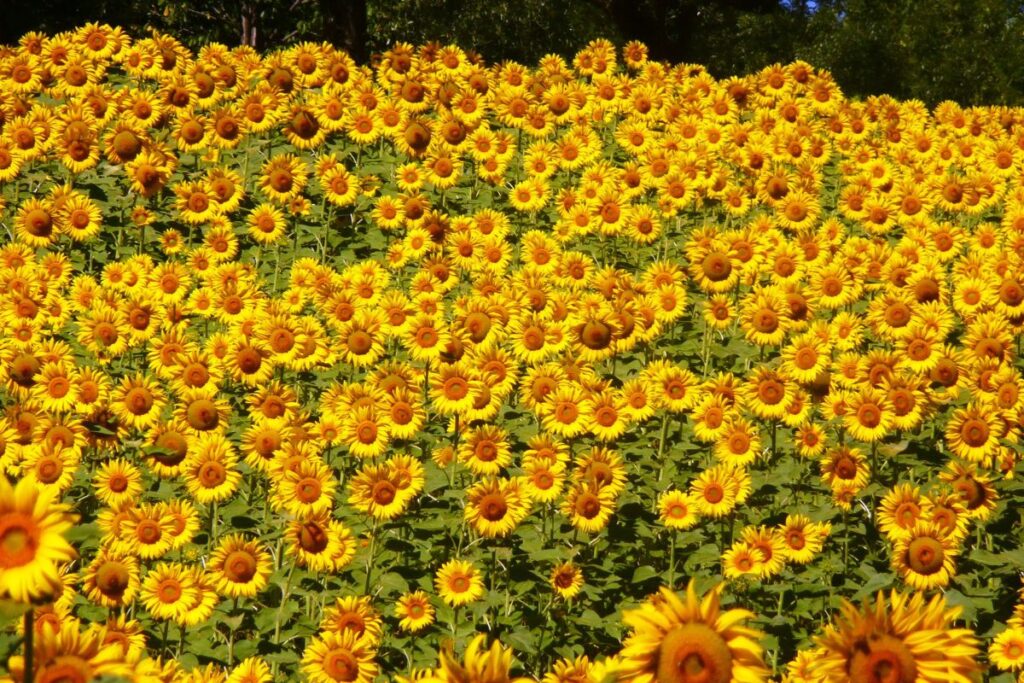
Abruzzo’s varied climate and fertile soil make it an ideal region for agriculture. The region is known for producing high-quality olive oil, wine, and saffron. Vineyards cover the rolling hills, producing notable wines such as Montepulciano d’Abruzzo and Trebbiano d’Abruzzo. Olive groves are abundant, and the olive oil produced here is celebrated for its flavor and quality. Additionally, Abruzzo’s mountainous areas are conducive to sheep farming, providing high-quality lamb and pecorino cheese.
Tourism and Major Attractions
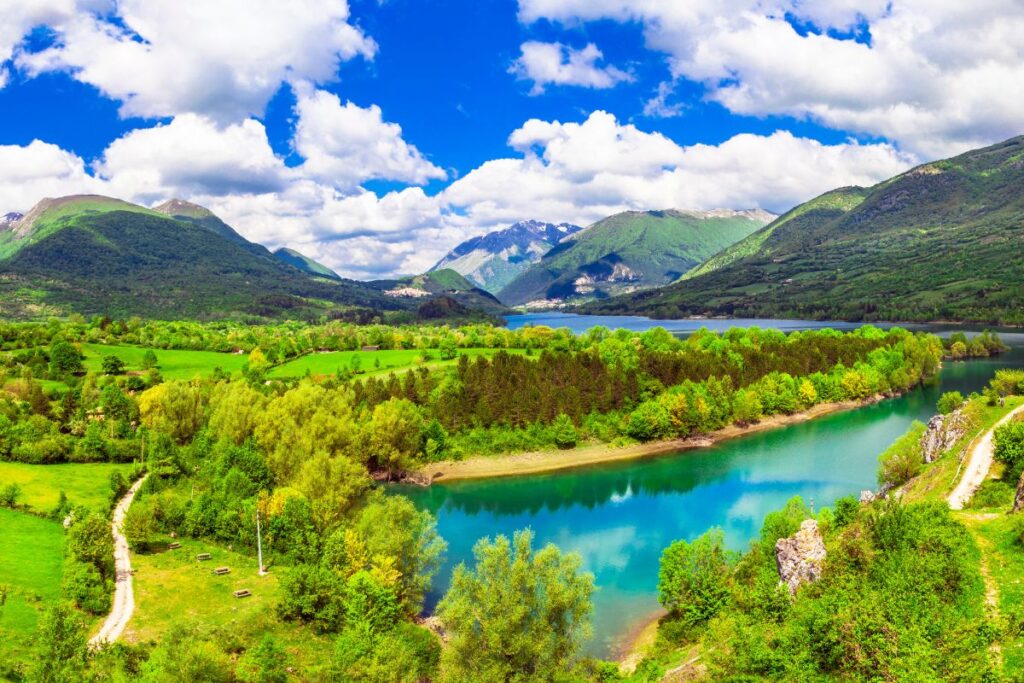
Abruzzo offers a wealth of attractions for visitors to explore, from natural parks to historical sites.
Gran Sasso and Monti della Laga National Park
This park is home to the highest peak of the Apennines, Gran Sasso, and offers opportunities for hiking, climbing, and skiing. The park is also rich in wildlife, including the Abruzzo chamois and the Marsican brown bear.
Majella National Park
Known for its rugged landscapes and extensive cave systems, this park is a haven for nature lovers and adventure seekers. Visitors can explore ancient hermitages, hike scenic trails, and enjoy the park’s diverse flora and fauna.
Rocca Calascio
This medieval fortress, perched high in the Apennines, offers breathtaking views of the surrounding mountains and valleys. It is one of the highest fortresses in Italy and has been featured in several films, including “The Name of the Rose.”
Costa dei Trabocchi
This stretch of coastline is famous for its traditional fishing huts called trabocchi, which are built on stilts over the sea. The area offers beautiful beaches, crystal-clear waters, and excellent seafood restaurants.
Scanno
A picturesque village known for its charming medieval streets and beautiful lake, Lago di Scanno. The village is also famous for its traditional goldsmiths and intricate filigree jewelry.
Festivals and Events
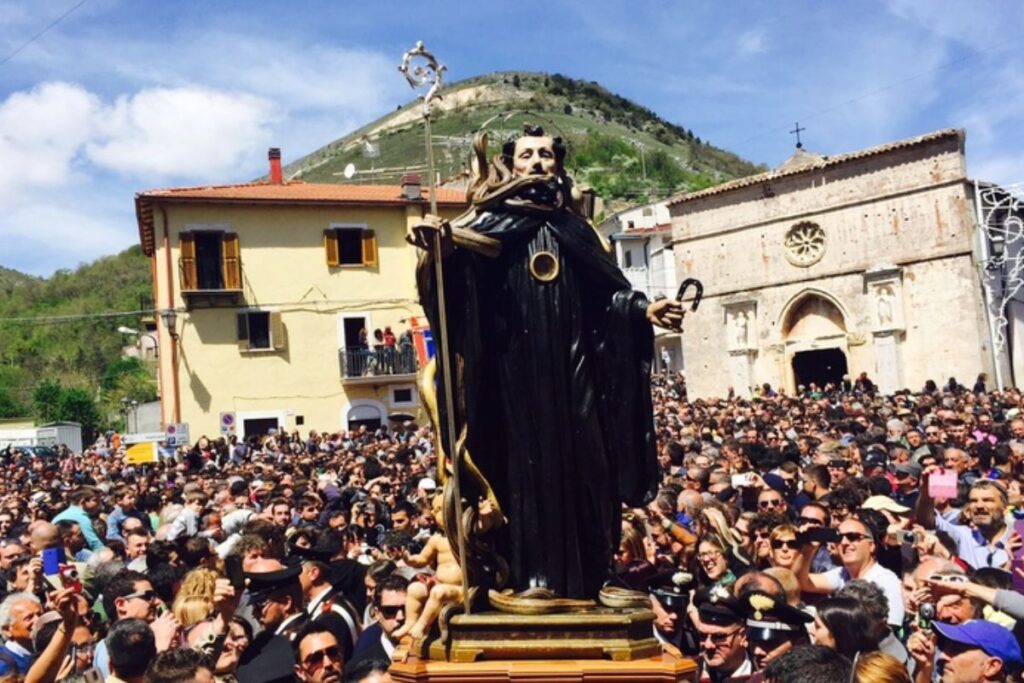
Abruzzo’s rich cultural heritage is celebrated through numerous festivals and events throughout the year.
La Perdonanza Celestiniana
Held in L’Aquila, this annual festival dates back to the 13th century and includes religious processions, medieval reenactments, and cultural performances.
Festa di San Domenico
This unique festival in Cocullo features a snake-handling ritual, where participants carry live snakes through the streets in honor of Saint Dominic.
Pescara Jazz Festival
One of Italy’s oldest jazz festivals, held every July in Pescara, attracts top international and Italian jazz musicians.
Sagra della Ventricina
A food festival in Vasto dedicated to ventricina, a traditional salami made with pork and spices. The festival includes tastings, cooking demonstrations, and cultural events.
Things to See and Do
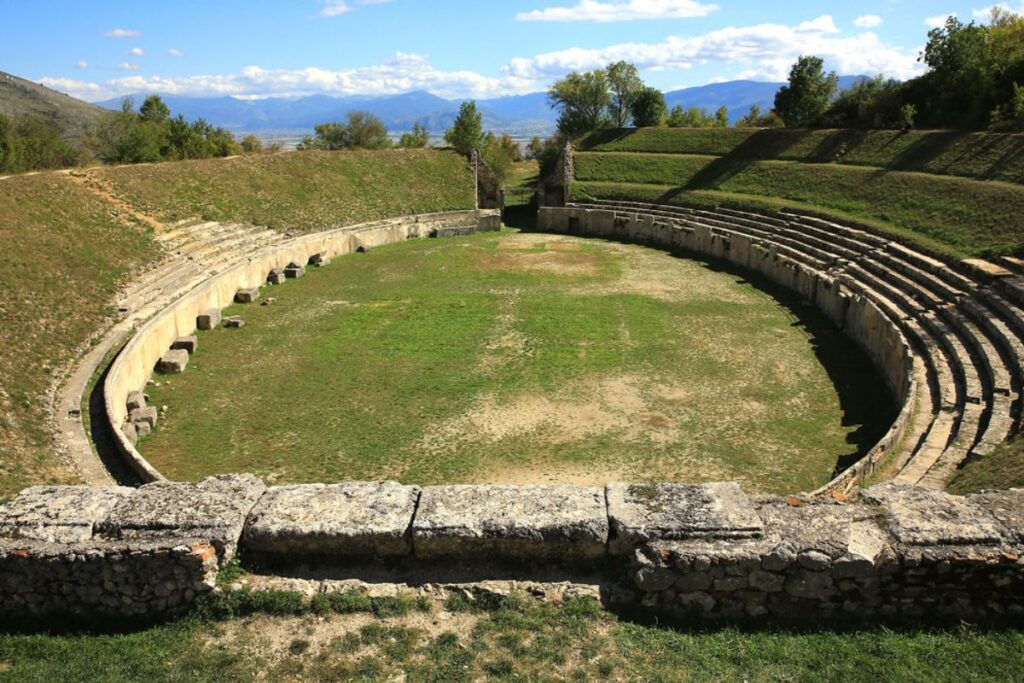
Abruzzo offers a wide range of activities for visitors, from outdoor adventures to cultural experiences.
Hiking and Skiing
With its diverse terrain, Abruzzo is a paradise for hikers and skiers. The Gran Sasso and Majella National Parks offer numerous trails and ski slopes.
Beach Activities
The Adriatic coast provides plenty of opportunities for swimming, sunbathing, and water sports. Pescara and Vasto are popular beach destinations.
Explore Medieval Villages
Discover the charm of Abruzzo’s medieval villages, such as Santo Stefano di Sessanio, Civitella del Tronto, and Pacentro. These villages offer a glimpse into the region’s rich history and traditional architecture.
Visit Historical Sites
Explore the many castles, fortresses, and ancient ruins scattered throughout the region, including the Roman ruins in Alba Fucens and the impressive castle in Celano.
Conclusion
Abruzzo is a region that offers a unique blend of natural beauty, rich history, and vibrant culture. Whether you’re exploring its rugged mountains, relaxing on its beautiful beaches, or savoring its delicious cuisine, Abruzzo promises an unforgettable Italian experience. With its stunning landscapes and charming towns, this hidden gem of Italy is waiting to be discovered.


